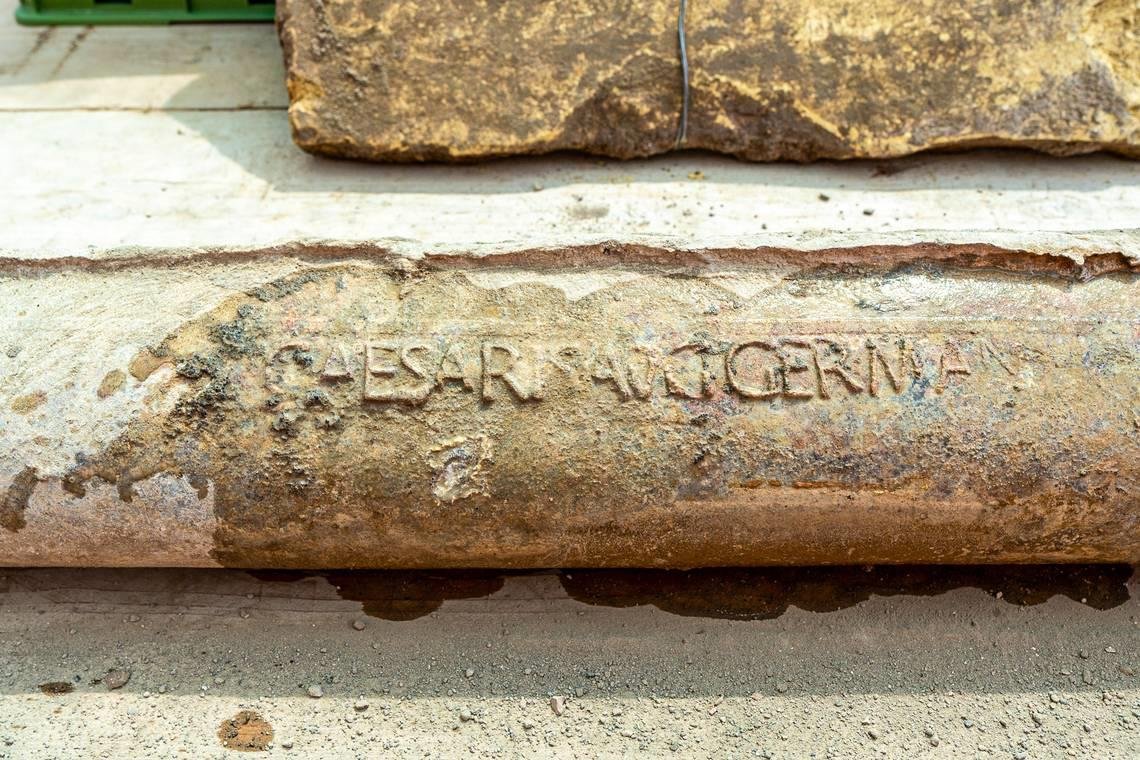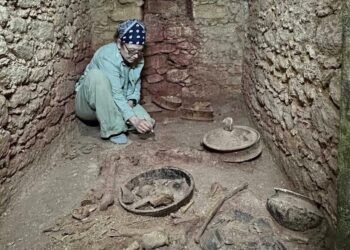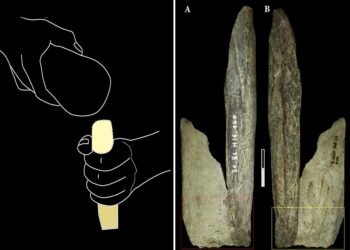Archaeologists have unearthed the remains of an ancient garden belonging to the notorious Roman Emperor Caligula in Rome.

The significant find occurred during the construction work aimed at pedestrianizing Piazza Pia, an extensive project that includes the creation of an underpass to channel traffic and establish a large pedestrian square. This initiative is part of the preparations for the Vatican’s Jubilee Year 2025, which is expected to attract millions of pilgrims to the city.
Archaeologists initially stumbled upon a 1,700-year-old laundry facility at the site. As they relocated these ruins, they uncovered the remains of a vast, colonnaded garden on the right bank of the Tiber River. The garden featured a walkway flanked by columns and an expansive open space, likely used for cultivating various plants. The remains of a travertine wall and the foundations of a portico add to the grandeur of the find, even in their ruinous state.
The identification of the garden’s owner was facilitated by the discovery of a lead water pipe, or fistula plumbea, stamped with “C(ai) Csaris Aug(usti) Germanici” – Caesar Augustus Germanicus, the official name of Emperor Caligula. This crucial piece of evidence was complemented by literary sources from antiquity, particularly the writings of Philo of Alexandria. Philo’s accounts describe an event where Caligula met with a delegation of Jews from Alexandria in a garden overlooking the Tiber, separated by a monumental portico, which aligns with the newly discovered site.

Italy’s Ministry of Culture elaborated that previous finds in the area, including pipes inscribed with the name of Iulia Augusta (Livia Drusilla, the second wife of Augustus and grandmother of Germanicus), suggest that this luxurious residence was initially inherited by Germanicus, then passed to his wife Agrippina the Elder, and eventually to their son Caligula.
Caligula, born Gaius Caesar Augustus Germanicus, ruled the Roman Empire from CE 37 to 41. His reign, though brief, was marked by extravagance, tyranny, and a descent into madness, as documented by historical sources. His demand to be worshiped as a living god and his antagonistic relationship with the Senate led to his assassination by members of his own Praetorian Guard, senators, and courtiers.

The discovery of the garden offers a tangible connection to this turbulent period in Roman history. The garden’s opulence and strategic location overlooking the Tiber reflect the grandeur and ambition of Caligula’s reign, despite its eventual downfall.
In addition to the garden, the excavation unearthed several other artifacts, including sections of a ruined wall, stone slabs, and terracotta roof decorations with mythological scenes. These terracottas, initially used as covers for sewers, likely adorned structures within the garden.
The construction at Piazza Pia is slated to conclude by December 2024, ensuring that the project stays on track despite the archaeological findings. Once the construction is complete, the relocated remains of the fullonic (the ancient Roman dry cleaners) will be displayed in the nearby grounds of Castel Sant’Angelo.
























